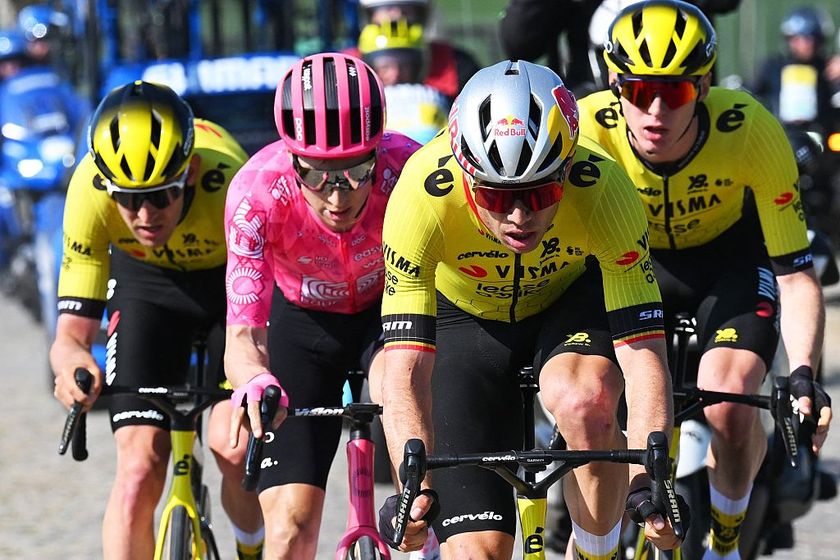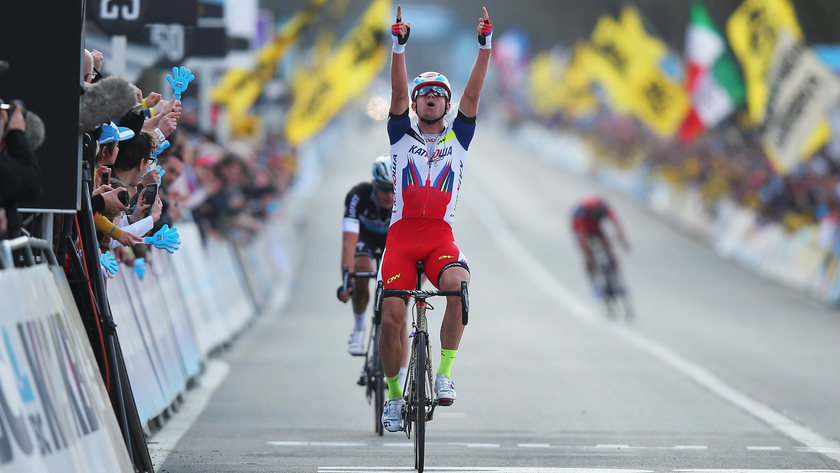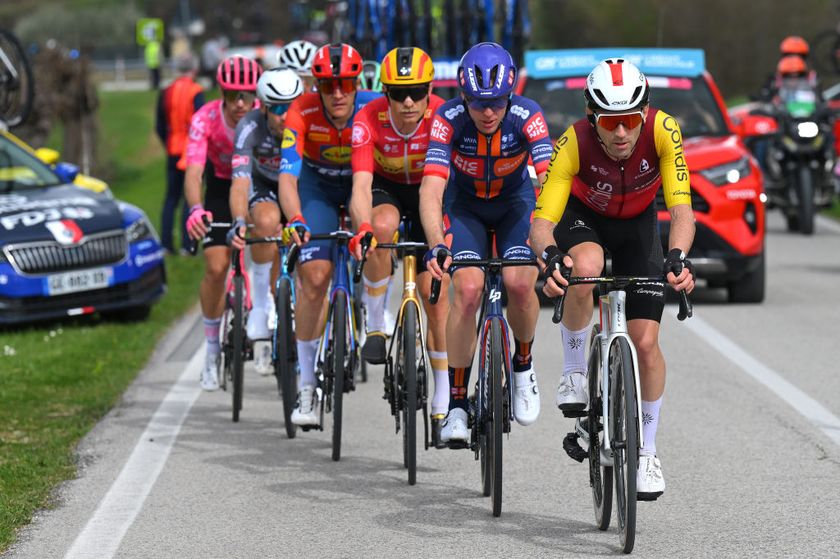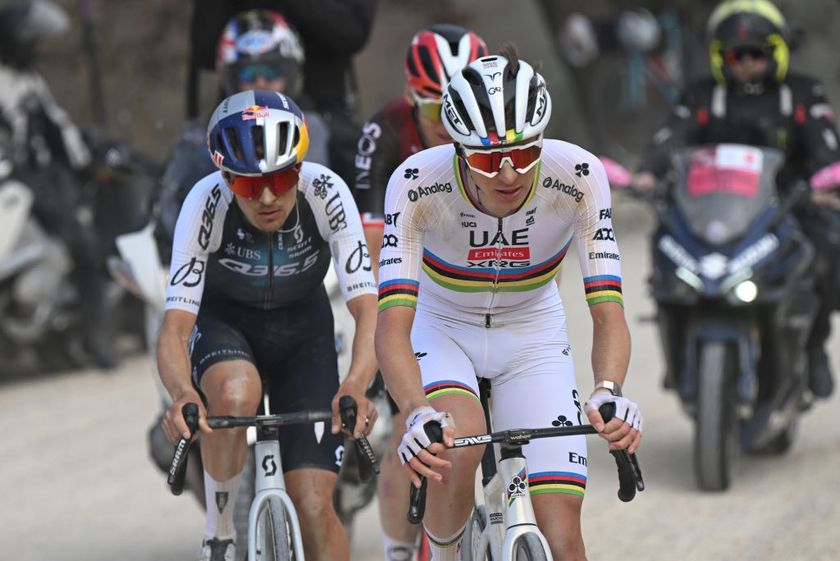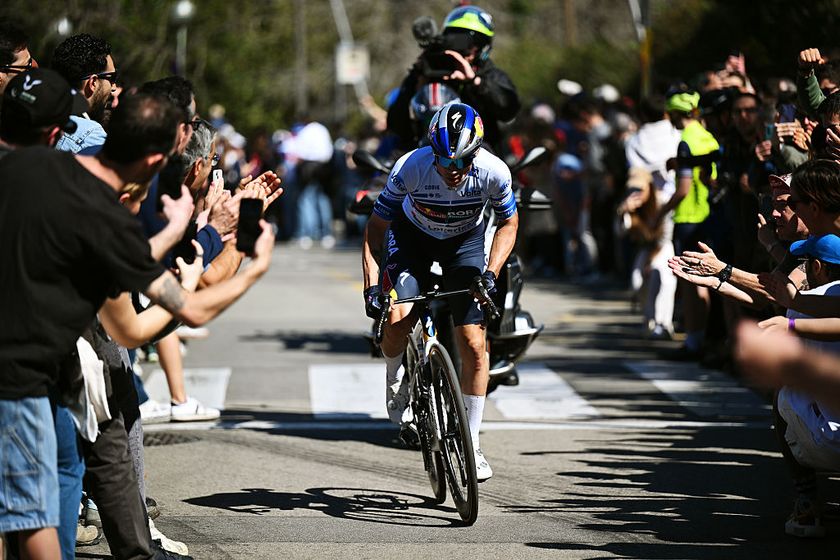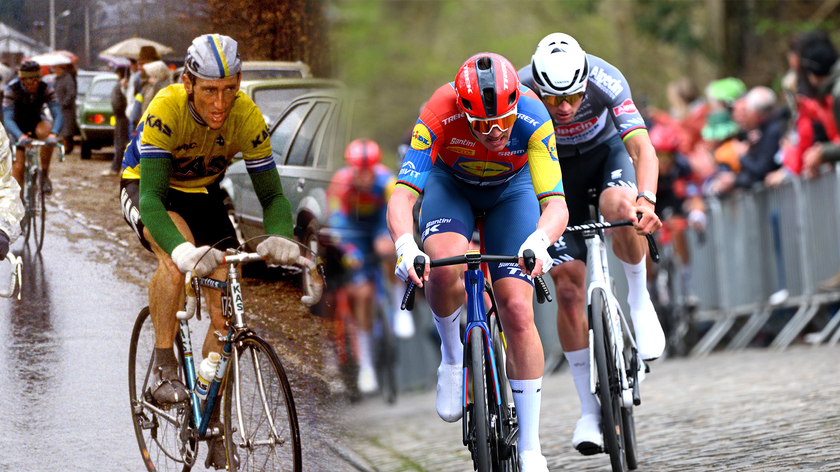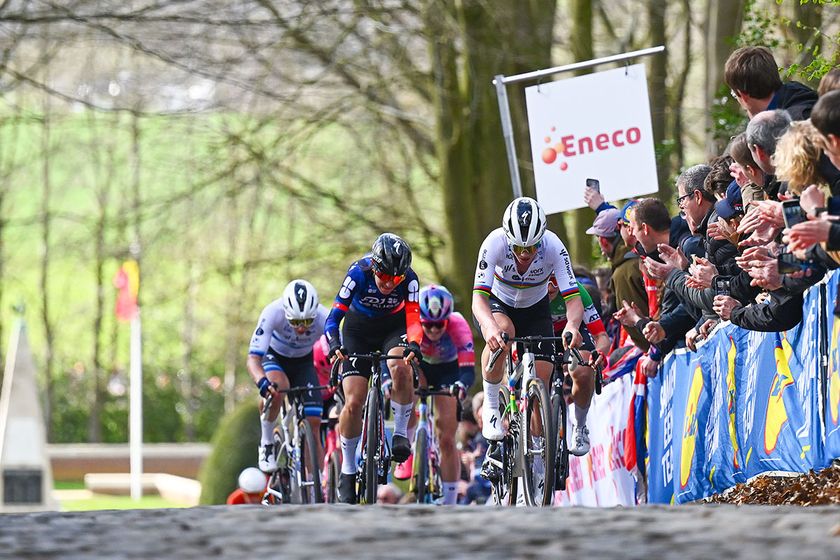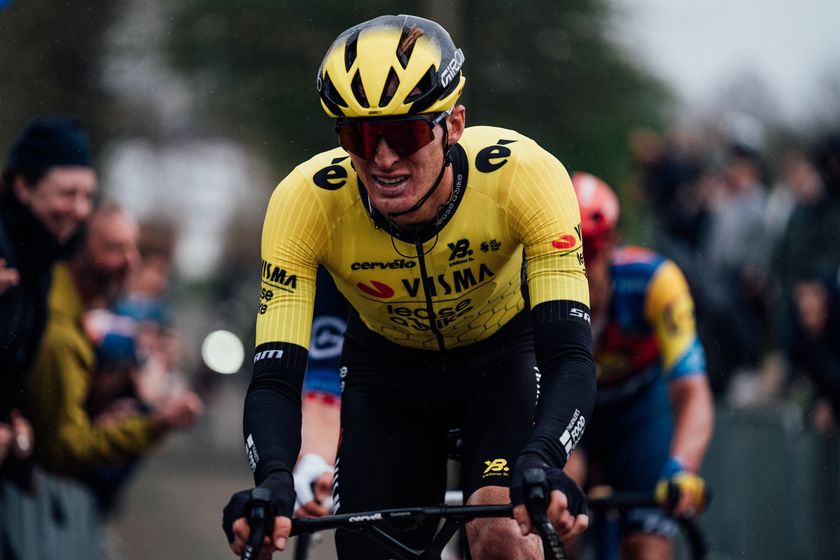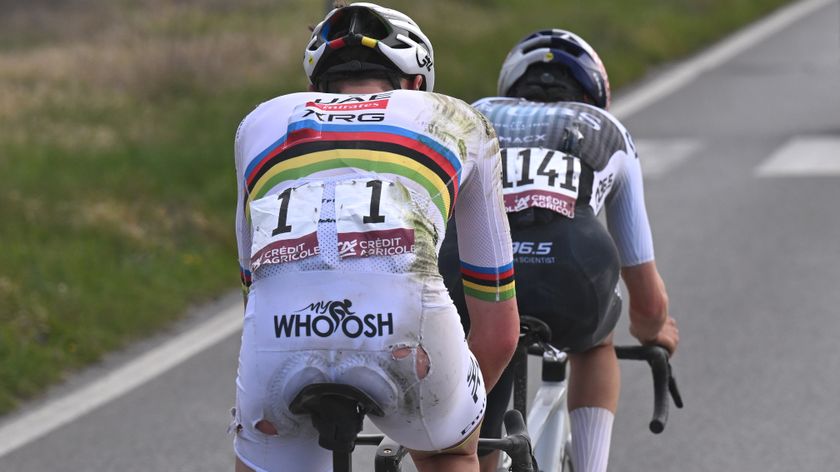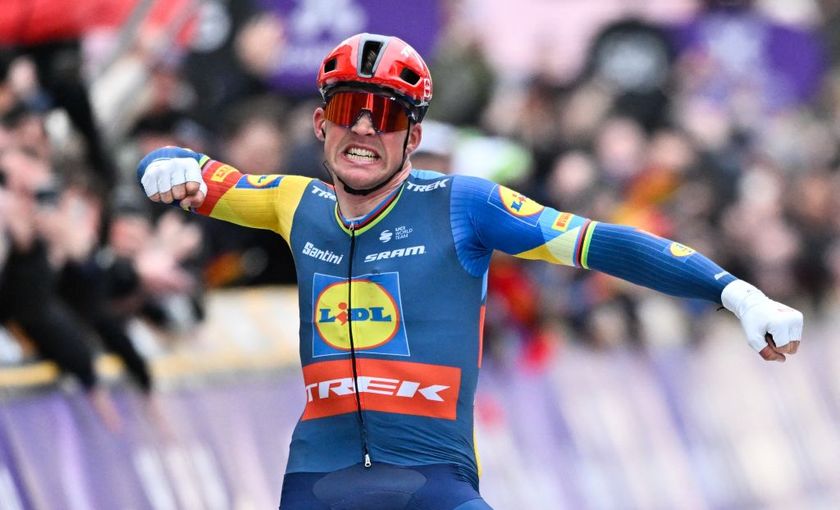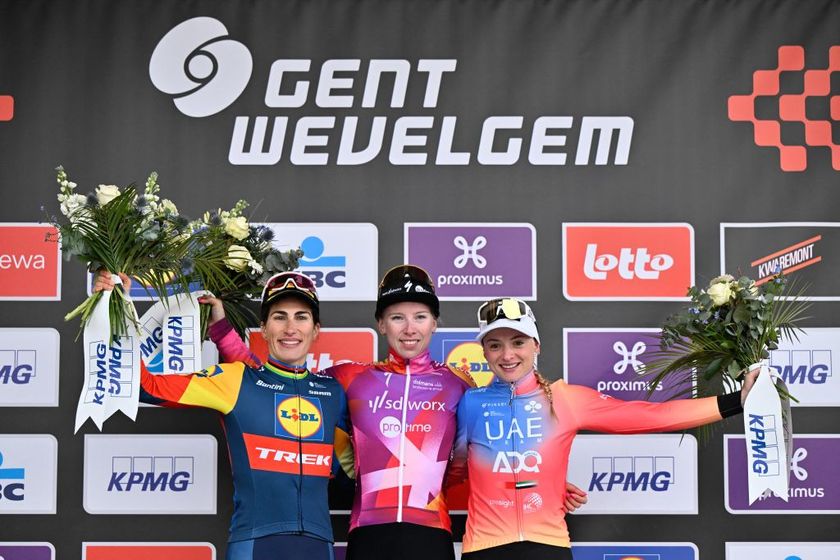Fitness questions and answers for January 17, 2005
Got a question about fitness, training, recovery from injury or a related subject? Drop us a line at...
Form & Fitness Q & A
Got a question about fitness, training, recovery from injury or a related subject? Drop us a line at fitness@cyclingnews.com. Please include as much information about yourself as possible, including your age, sex, and type of racing or riding. Due to the volume of questions we receive, we regret that we are unable to answer them all.
Carrie Cheadle, MA (www.carriecheadle.com) is a Sports Psychology consultant who has dedicated her career to helping athletes of all ages and abilities perform to their potential. Carrie specialises in working with cyclists, in disciplines ranging from track racing to mountain biking. She holds a bachelors degree in Psychology from Sonoma State University as well as a masters degree in Sport Psychology from John F. Kennedy University.
Dave Palese (www.davepalese.com) is a USA Cycling licensed coach and masters' class road racer with 16 years' race experience. He coaches racers and riders of all abilities from his home in southern Maine, USA, where he lives with his wife Sheryl, daughter Molly, and two cats, Miranda and Mu-Mu.
Kelby Bethards, MD received a Bachelor of Science in Electrical Engineering from Iowa State University (1994) before obtaining an M.D. from the University of Iowa College of Medicine in 2000. Has been a racing cyclist 'on and off' for 20 years, and when time allows, he races Cat 3 and 35+. He is a team physician for two local Ft Collins, CO, teams, and currently works Family Practice in multiple settings: rural, urgent care, inpatient and the like.
Fiona Lockhart (www.trainright.com) is a USA Cycling Expert Coach, and holds certifications from USA Weightlifting (Sports Performance Coach), the National Strength and Conditioning Association (Certified Strength and Conditioning Coach), and the National Academy for Sports Nutrition (Primary Sports Nutritionist). She is the Sports Science Editor for Carmichael Training Systems, and has been working in the strength and conditioning and endurance sports fields for over 10 years; she's also a competitive mountain biker.
Eddie Monnier (www.velo-fit.com) is a USA Cycling certified Elite Coach and a Category II racer. He holds undergraduate degrees in anthropology (with departmental honors) and philosophy from Emory University and an MBA from The Wharton School of Business.
Eddie is a proponent of training with power. He coaches cyclists (track, road and mountain bike) of all abilities and with wide ranging goals (with and without power meters). He uses internet tools to coach riders from any geography.
Get The Leadout Newsletter
The latest race content, interviews, features, reviews and expert buying guides, direct to your inbox!
David Fleckenstein, MPT (www.physiopt.com) is a physical therapist practicing in Boise, ID. His clients have included World and U.S. champions, Olympic athletes and numerous professional athletes. He received his B.S. in Biology/Genetics from Penn State and his Master's degree in Physical Therapy from Emory University. He specializes in manual medicine treatment and specific retraining of spine and joint stabilization musculature. He is a former Cat I road racer and Expert mountain biker.
Since 1986 Steve Hogg (www.cyclefitcentre.com) has owned and operated Pedal Pushers, a cycle shop specialising in rider positioning and custom bicycles. In that time he has positioned riders from all cycling disciplines and of all levels of ability with every concievable cycling problem.They include World and National champions at one end of the performance spectrum to amputees and people with disabilities at the other end.
Current riders that Steve has positioned include Davitamon-Lotto's Nick Gates, Discovery's Hayden Roulston, National Road Series champion, Jessica Ridder and National and State Time Trial champion, Peter Milostic.
Pamela Hinton has a bachelor's degree in Molecular Biology and a doctoral degree in Nutritional Sciences, both from the University of Wisconsin-Madison. She did postdoctoral training at Cornell University and is now an assistant professor of Nutritional Sciences at the University of Missouri-Columbia where she studies the effects of iron deficiency on adaptations to endurance training and the consequences of exercise-associated changes in menstrual function on bone health.
Pam was an All-American in track while at the UW. She started cycling competitively in 2003 and is the defending Missouri State Road Champion. Pam writes a nutrition column for Giana Roberge's Team Speed Queen Newsletter.
Dario Fredrick (www.wholeathlete.com) is an exercise physiologist and head coach for Whole Athlete™. He is a former category 1 & semi-pro MTB racer. Dario holds a masters degree in exercise science and a bachelors in sport psychology.
Scott Saifer (www.wenzelcoaching.com) has a Masters Degree in exercise physiology and sports psychology and has personally coached over 300 athletes of all levels in his 10 years of coaching with Wenzel Coaching.
Kendra Wenzel (www.wenzelcoaching.com) is a head coach with Wenzel Coaching with 17 years of racing and coaching experience and is coauthor of the book Bike Racing 101.
Steve Owens (www.coloradopremiertraining.com) is a USA Cycling certified coach, exercise physiologist and owner of Colorado Premier Training. Steve has worked with both the United States Olympic Committee and Guatemalan Olympic Committee as an Exercise Physiologist. He holds a B.S. in Exercise & Sports Science and currently works with multiple national champions, professionals and World Cup level cyclists.
Through his highly customized online training format, Steve and his handpicked team of coaches at Colorado Premier Training work with cyclists and multisport athletes around the world.
Brett Aitken (www.cycle2max.com) is a Sydney Olympic gold medalist. Born in Adelaide, Australia in 1971, Brett got into cycling through the cult sport of cycle speedway before crossing over into road and track racing. Since winning Olympic gold in the Madison with Scott McGrory, Brett has been working on his coaching business and his www.cycle2max.com website.
Richard Stern (www.cyclecoach.com) is Head Coach of Richard Stern Training, a Level 3 Coach with the Association of British Cycling Coaches, a Sports Scientist, and a writer. He has been professionally coaching cyclists and triathletes since 1998 at all levels from professional to recreational. He is a leading expert in coaching with power output and all power meters. Richard has been a competitive cyclist for 20 years
Andy Bloomer (www.cyclecoach.com) is an Associate Coach and sport scientist with Richard Stern Training. He is a member of the Association of British Cycling Coaches (ABCC) and a member of the British Association of Sport and Exercise Sciences (BASES). In his role as Exercise Physiologist at Staffordshire University Sports Performance Centre, he has conducted physiological testing and offered training and coaching advice to athletes from all sports for the past 4 years. Andy has been a competitive cyclist for many years.
Michael Smartt (www.cyclecoach.com) is an Associate Coach with Richard Stern Training. He holds a Masters degree in exercise physiology and is USA Cycling Expert Coach. Michael has been a competitive cyclist for over 10 years and has experience coaching road and off-road cyclists, triathletes and Paralympians.
Kim Morrow (www.elitefitcoach.com) has competed as a Professional Cyclist and Triathlete, is a certified USA Cycling Elite Coach, a 4-time U.S. Masters National Road Race Champion, and a Fitness Professional.
Her coaching group, eliteFITcoach, is based out of the Southeastern United States, although they coach athletes across North America. Kim also owns MyEnduranceCoach.com, a resource for cyclists, multisport athletes & endurance coaches around the globe, specializing in helping cycling and multisport athletes find a coach.
Fitness and Health Question
Knee Problems
Power training and heart rate
Training for Alps ride
Impending Biodynamic Bike Fit
"Pursuiter's cough"
Fitness and Health Question
In the middle of last season, I developed chronic pain in the front of my right hip joint in what I think is my hip flexor. Throughout the summer, I frequently experienced shooting or throbbing pain in this tendon, normally lasting one or two days - this occurred usually after periods of high mileage or hard racing. I have read on various orthopaedic and sports medicine web sites that tendonitis in this area can be caused by the repetitive force of pushing down on the pedals in cycling. I also read that over-developed quadriceps muscles paired with under-developed or tight hamstrings and under-developed abdominal muscles can exacerbate the problem. One article even suggested that improper saddle height could contribute to this form of tendonitis.
I started a yoga class about six weeks ago in order to develop greater flexibility in my hamstrings and to work my core muscles. However, even with this activity, careful stretching before rides, and less time on the bike following the wrap-up of Cross season here in the Midwest early last month, the pain persists.
My questions are: Is hip flexor strain associated with a saddle height that is too high or too low? Do I need to take a complete break from cycling and perform strengthening exercises to repair the problem?
Do you recommend any specific strengthening exercises? I am concerned about losing fitness if I take too much time off the bike now, but also do not want to cause lasting damage. Thanks for your assistance.
Todd Davis
Kansas City, MO, USA
Steve Hogg replies:
The potential causes for hip flexor pain on a bike are many. The more important question that I would be asking though, is why only on the right side. The general answer is that there are asymmetries of function at work in the hip/pelvis area. Find a good structural health professional and have yourself assessed structurally. Once you have this info get back to me and we will proceed from there.
Knee Problems
I am a 17-year-old cyclist who has been riding for two and a half years. I usually complete around 300km a week, mostly uphill or back down. Over the last few months I have been developing problems with my right knee. At first I had a problem with the tendon that runs over the petala. It was inflamed from a muscular imbalance caused by using the right leg more when turning left. Such is the problem with track racing and criteriums. After two weeks off the bike and a few exercises from the physio this problem went away. But now my knee is giving me problems in a different way. The tendon no longer gives me any pain, but under the kneecap does. Every time I go out riding my knee cracks, like one was cracking their knuckles. Then about 10km into the ride the pain starts in the joint. When I move the kneecap around, it feels very rough and occasionally a crunching noise accompanies this feeling.
Whenever I do the squatting exercises I've been given by my physio, my left leg can bend up and down without my lower leg and upper leg leaving the same vertical plane. However, when the squatting exercises are done with my right leg, my knee bends inwards drastically.
I have also had a problem with my shins over the years. After running or cross-country skiing, I would encounter problems that felt like shin splints. However, I eventually realised it could not be shin splints as I would always run on grass and these pains would come without extended periods of exercising. Since my knee pain has started, a pain down my shin has accompanied it, but in both legs. I'm pretty sure that the pain in the shin comes from a muscle tightening onto the bone and causing great pain.
I have tried adjusting my cleat position to no avail and my saddle height seems to be right according to other cyclists and bike shop owners. Do I have misaligned kneecaps as was suggested by a nurse or do I simply pedal harder with my right side than my left?
Ross Hamilton
Dave Fleckenstein replies:
I would tend to agree with your nurse in many ways - you show classic signs of someone with patellar tracking problems. Simply put, the patella sits in a groove within the femur and ideally glides within that groove as we flex and extend our knee. The knee is made to primarily function as a hinge joint. Problems arise when rotation occurs at the knee (now working as a U-joint) and the patella is pulled to the outside, forcing contact between it and the femur. The majority of the time, I feel that the patella is the "victim" of "culprit" forces above and below the knee. There are a number of factors that can cause this to occur, including overpronation, lateral quadricep and IT band tightness, VMO weakness (which incidentally I have never really seen as the driving problem in cyclists), and hip rotational issues. When you mention how your knee bends inward on the right side with squats, it indicates to me that you are not controlling your leg well - I would be curious to see how you respond to some more aggressive hip strengthening (internal and external rotators and gluteus medius specifically) and possibly the use of orthotics. It would certainly be worth your while to see a good sports medicine orthopaedic physician and physical therapist to get this resolved. Best of luck.
Power training and heart rate
I'm a 39-year-old Cat 2 road rider in the UK. I've been reading with interest all the articles on training according to power in preference to HR. In particular I noticed that it's been said that generally, for a given HR, a lower cadence will elicit more power, which is intuitively reasonable as there is an energy cost to revving. My question is: what elicits the best training effect? If I ride at (using random figures) 160 bpm doing 110 rpm generating 250W, is that any more or less beneficial to riding at 160 bpm at 85 rpm generating 275W? Are the cardiovascular training effects the same, or is the work done overcoming the inefficiency of revving entirely wasted effort - therefore implying that the majority of training should be accentuating power output?
Richard Hare
Basildon, Essex, UK
Eddie Monnier replies:
First, it's impossible to properly answer your question without knowing more information about you (eg - your functional threshold power; that is, what you could sustain for 50-70 mins, your target event(s), your limiters, etc.). Second, "best training effect" will vary depending on what you're training for and where you are in your training program. However, I will make some general comments that may (or may not) be helpful. As you probably know, HR can vary considerably due to many variables, both internal (e.g., your state of rest, your diet, your hydration status, etc) and external (eg - heat, humidity, elevation, etc.).
Training for Alps ride
Last year I trained for a 5 day Pyrenean ride where we covered nine cols including Aubisque, Tourmalet and Plateau de Beille. I had done about 5000 km of training going into the ride with hill training restricted to short, but steep rides found in southern England. I found that, apart from the gradients of the French climbs, which were similar - the distances were just so significantly longer (typically between 13-18km) that I can't decide what training in my part of the UK would have been most beneficial. I found eating a GoGel every 15-20 mins on the climb and riding at 157 average HR meant I made it to the top of each climb without stopping.
I have signed up to the Alpine week this year in August, with even longer climbs such as Izoard and Ventoux figuring in the line-up. Average daily distance covered is 75km with at least one if not two climbs a day (one small/one large). Given I am 181cm and 82kg, task number one, post winter feeding frenzy, is to get my weight down. However, how do you recommend I train for this better this time round? I do not have a Power Meter - although I am looking at Powertap to go with my Bontragers - but have a Polar 720i. I have heard bad things about the Polar Power system so don't want to go there.
Stuart Collingwood
Ric Stern replies:
It's certainly a challenge to do specific training for rides like the Etape or your Alpine week in the UK, due to a lack of long climbs that are available. Even if you venture out of the south east, the longest climbs I can think of are typically only about 30-mins long at most (e.g., Cat and Fiddle and Snake Pass, both around Derbyshire and Bwlch and Rhigos in South Wales - I'm sure there are other long climbs, these just spring to mind for me). Obviously the Alpine climbs are significantly longer climbs than these.
Impending Biodynamic Bike Fit
I am a 31-year-old Cat 4, who has taken the advice of your forum and others to get a proper bike fit to correct some lower back/knee pain issues with road racing. I have an appointment with a well well-known BioDynamic bike fit shop to tweak the road racing position on my current bike. What are some things I can do on my end to prepare for this? Do I just "leave it up to the pros?"
I am expecting to be deluged with a tonne of data - some that I will be familiar with, some that's way over my head. I just want to make sure that I get the most of this situation. They have also agreed to make suggestions for my MTB, my primary winter bike. Thanks for your help!
Patrick Haley
Milwaukee, WI
Steve Hogg replies:
I don't know anything about 'BioDynamic bike fit' as I have not heard the term previously. The only thing I can suggest is that ideally, the people whose help you are enlisting should assess you structurally, off the bike, as a starting point. What they find should be communicated to you in terms that you can understand so that you have an understanding of your basic issues. If this does not occur, or the process seems based more on mathematical and statistical norms than your structure, be very wary.
"Pursuiter's cough"
After racing the Tasmanian Carnival series, I have a question about the so-called "pursuiter's cough". A lot of people, myself included, seem to develop a particularly nasty hacking cough when doing track-endurance type races like 2000 and 3000m handicaps. I didn't feel sick, my throat wasn't sore - I just needed to cough. A lot. Cough suppressants seemed to help a little, but didn't cure me of it completely. As I've asked around, it seems to be a pretty common thing, even amongst those who do this a lot (ie - scratchmen, who are "real" trackies as opposed to mountain biking roadie frontmarkers like myself), but no-one really seemed to know what it was. Do you have any ideas either for a reason or for a cure/remedy? I assume it's connected with the very high intensity workout you can only get from that kind of racing, because as soon as I stopped racing the cough has gone away.
Simon van der Aa
Tasmania, Australia
Scott Saifer replies:
Perhaps one of the other coaches will jump in with a more detailed explanation, but essentially you have irritated your airways by drawing dry air across them. There is no virus or bacterium involved. It's more like a burn than an infection. The healing process takes a few days to a few weeks. My own experience is that I got the track hack the first race session of every season, and that it never returned unless the air was especially cold or dry or I took a few weeks away from the track and returned. The area that is irritated is farther down your pipes than the area that a throat lozenge would reach, so they won't help much. Other than time, regular attendance at track and moist air, I don't know of anything that will bring a cure.
